Videos/Films to see
This page allows people to find films that are interesting and relevant to their research on areas to do with climate change that are especially informative and valuable.
Life on the planet – David Attenborough
This is a Netflix film by David Attenborough that provides a great view of his experiences with the planet. The broadcaster recounts his life, and the evolutionary history of life on Earth, to grieve the loss of wild places and offer a vision for the future. You will need a Netflix subscription to view the film.
Click on the button to go directly to the Netflix page, and then set up a subscription or sign in to your account.
Click on the picture of the Kingfisher to go to the clip for the film.
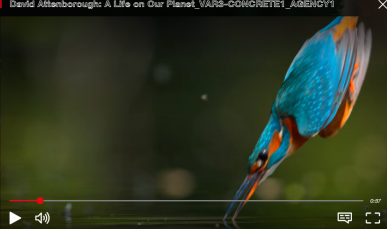
Climate Change – the Facts
This is another David Attenborough film, which you may have seen before you came on a course. It is 58 minutes long. It is available on iPlayer, so you will either need to sign into your account or create an account. You will need to have a TV license to access iPlayer. Click on the button to go to the film.
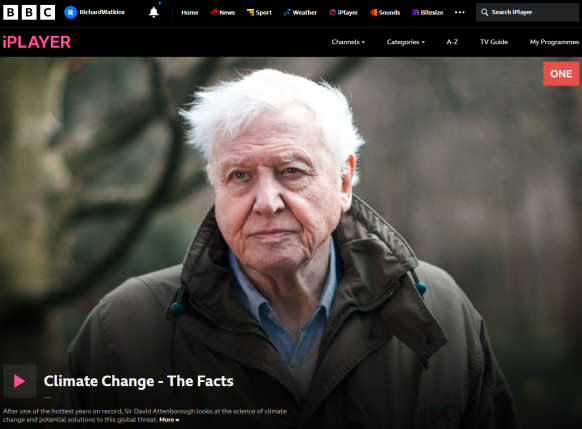
Earth – Chris Packham series
Chris Packham has created a great five-part series that documents the evolution of Earth and shows the highs and lows of climate development, through ice ages and natural disasters and then talks about humans and their role on the planet. It is available from the BBC on iPlayer, and you will need to register to see it.
Click on the button below to get to the right page on BBC.
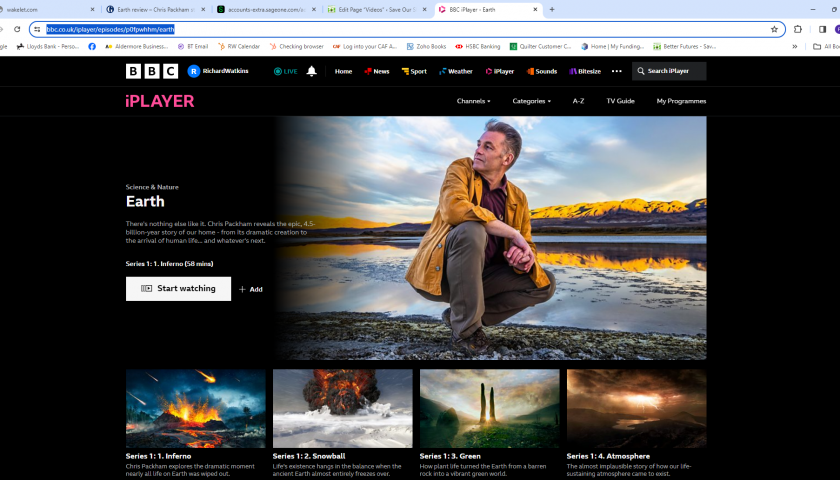
Butan for Life
This TED talk – “This country isn’t just carbon neutral — it’s carbon negative” by Tshering Tobgay is incredibly inspirational about how a small country of 700,000 people has managed to become carbon negative. Core to the message is that they measure Gross Nation Happiness and not Gross National Product.
Seaspiracy
This Netflix documentary film provides a direct review of what we are doing to the fish in the sea through the industries that work in the oceans. Passionate about ocean life, the filmmaker sets out to document the harm that humans do to marine species — and uncovers alarming global corruption.
Click on the picture of the fish to see the trailer (which is very good) or
Click on the button to go to the full Netflix film, where you will need to either sign in to your Netflix account or create a Netflix account.
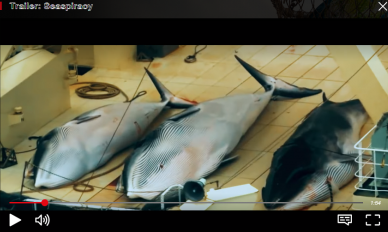
Life in 2040
David Gameau has produced a film called “Life in 2040” which is in the form of a letter to his daughter and describes what life could be like in 2040 if we just make use of the technologies available to us today. The results are exciting. There is a Youtube “advert” for the film that you can watch.
You can buy the film from Amazon Prime; just click on the button.
Visualise our emissions
Ever wondered what 1 metric tonne of CO2 equivalent actually looks like and how much space it takes up? Have a look at the following visual which is very simple, and illustrates how much we are emitting each minute, each hour, each day in the UK.
Talking About Climate Change
Talking about climate change is difficult, and this great video summarises well how to avoid the pitfalls of talking about climate change and helps engage other people.
Life on Two tonnes of Emissions per year
Here is a great video that explains how our lives would look if we stuck to two tonnes of carbon emissions per year. What is not to like?

Click on the following button to find out more:
Electric Cars – a realistic future?
This programme from the BBC is a great summary of the current situation with respect to the future for electric (and hydrogen) cars. It goes from turning old cars electric and showing how they are more efficient through to the difficulties with Lithium mining and so on. All you ever wanted to know!
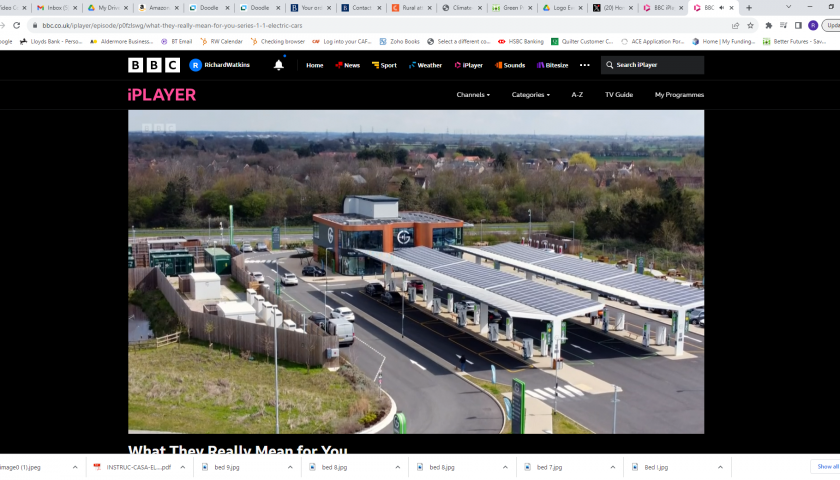
click on the following button to go to iPlayer to see it. You will need a TV License to view.
Traditional forms of heating like gas are due to be phased out The favoured technology at present is Air Source Heat Pumpss, but this brilliant BBC programme explores the issues of cost, availability of electricity and hydrogen as alternatives. It also shows how our antiquated planning processes prevent alternatives like on shore wind wind power (much cheaper) and nuclear (expensive) from getting built. It makes clear we really need to understand how important it is to tackle the blockages on wind power and nuclear production to achieve our net-zero targets.
